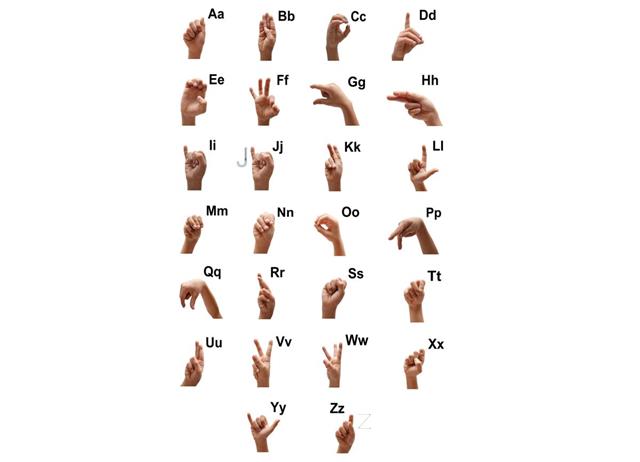
Tap to Read ➤
How to Become a Sign Language Interpreter
Puja Lalwani


Becoming a sign language interpreter is no easy task as it requires the display of a high degree of language skills. If you think you can make it through, here's how to become a sign language interpreter to pursue your career goal.

The job of a sign language interpreter is highly challenging. These are individuals who allow for the communication between those who have hearing and speech disabilities and those who require help understanding them, thereby helping them overcome their challenges in communication.

The job is challenging because the person who performs it is required to have a high degree of linguistic and cognitive skills to be able to interpret sign language. The American Sign language (ASL) is a different language altogether with its own technicality including grammar and sentence construction.

Every word in the English language is replaced by means of a sign, and these signs and interpretations may vary among cultures. As such, the interpreter should be highly skilled in understanding English, as well as the ASL.

Becoming a sign language interpreter then requires a thorough education along with a good amount of experience. Here, we tell you about the requirements to become a sign language interpreter.

Becoming a Sign Language Interpreter
In order to become a good and well paid sign language interpreter, it is imperative that you get a degree and attain certification in the field from the Registry of Interpreters for the Deaf, Inc. (RID). The exact steps you need to take to become one have been given here.

Step 1: Get a Degree
Attaining a bachelor's degree, preferably with a major in a language such as the English language will be helpful. If not the English language, you may also choose to major in a field such as communications.

The cultural aspects of communication should be covered in your course of education. While attaining a bachelor's degree is not mandatory, it simply strengthens the foundation of your training in sign language, and also increases your prospects in finding suitable employment.

Step 2: Enroll in the American Sign Language Training Program
This training program is offered by community colleges, but you may also pursue the program at the American Sign Language University that is an online university. It usually offers courses that are 15 weeks long and provide training in deaf literature, sign language, and English language.

The duration of the program can be altered as per the convenience of the student, so that it may end sooner or later than expected.

Step 3: Gain Basic Work Experience
To be a proficient sign language interpreter, you should spend some time with those who have hearing disabilities to understand the way in which they communicate to master that form of communication. Irrespective of whether or not you get paid, spending time with such individuals is important.

Again, this kind of experience will enhance your job prospects and will definitely take you ahead to achieve your career goals. Apart from spending time with those who have hearing disabilities, you may train ASL learners or volunteer with a community organization such as the American Red Cross for experience.

In any case, a minimum of 3-5 years of work experience is required before you can attain employment with a major organization.

Step 4: Attain Certification from the RID
In order to attain certification from this organization, you must have a high degree of knowledge in sign language. You should have been able to cover as many aspects of this form of communication as possible, and should have been able to have worked in a variety of settings. These are some of the requirements to attain certification.

In order to prepare for the RID exam, you may take courses that are offered in different colleges, or may just visit their website to understand the methods of tutoring yourself. Once certification is attained you will be ready to enter the field as a professional sign language interpreter.

An individual who qualifies as a sign language interpreter is someone who should display excellent skills in terms of speed, accuracy, alertness, and impeccable sign language skills. Not everyone can fulfill such requirements which is why there is a shortage of professionals in this field.

You need to appreciate diversity in culture and must possess excellent linguistic skills. You should be able to adapt easily and must showcase great interpersonal skills. Sign language interpretation involves an understanding of body language and facial expressions. Finally, respect for those who have hearing and speech disabilities is extremely important.

All in all, sign language interpretation is a field that is highly challenging, and the job cannot be taken lightly in any case. It is a sensitive field and should be treated in that manner.

If you think you still wish to become one, follow the aforementioned steps to pursue your goal. It is also a good idea to spend some time with professionals in the field to get a feel of what exactly is involved in the job, to get an idea of what you may be expected to do.